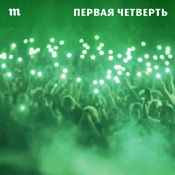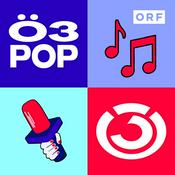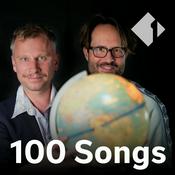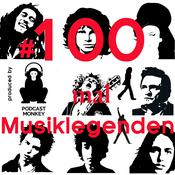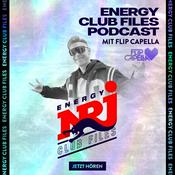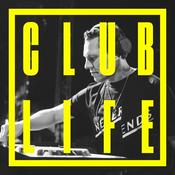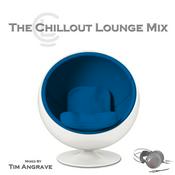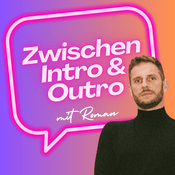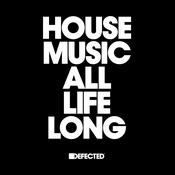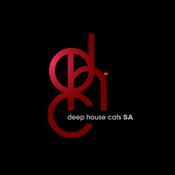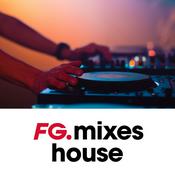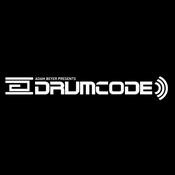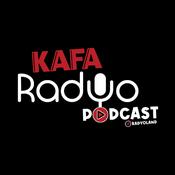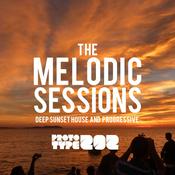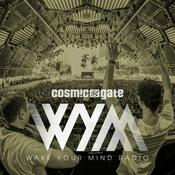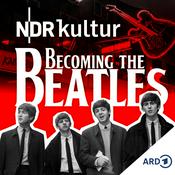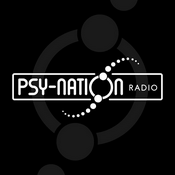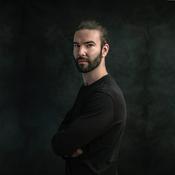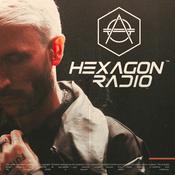99 Episoden

Lola Kay | True Techno 103
18.12.2025 | 1 Std. 2 Min.
© 2025 True Underground. All rights reserved. Lola Kay’s relationship with music was never passive. It was lived, absorbed, and embodied long before she ever stood behind a booth. Growing up in Minsk, Belarus, Lola Kay‘s childhood unfolded inside theatres rather than classrooms, shaped by the backstage corridors where her mother worked and where atmosphere, tension, and emotion were constructed night after night. Drama, sound, and silence all had purpose. At the same time, she was already dancing, learning intuitively how rhythm moves the body and how music alters mood. That early immersion taught her something foundational: music is not decoration, it is architecture As a child, Lola Kay was introspective and self-directed, spending long stretches alone with records and artwork. Electronic music arrived early, not through trends but through curiosity. Digging became instinctive. The raw energy and strange aggression of The Prodigy left a lasting imprint, a first encounter with electronic music that felt unruly, physical, and alive. It was less about genre and more about sensation, something she would later return to again and again. Dance became her first profession, and with it came a deep study of musical cultures. Classical, jazz, swing, and the lineage of artists like Duke Ellington and Louis Armstrong were not abstract references but living histories she felt through movement. Each dance style demanded immersion into its cultural context, its era, its emotional code. Music was never separated from place, time, or identity. That obsession with understanding where sound comes from still underpins her approach today, whether she is producing or layering four decks into a single evolving narrative. Her DJ sets are built with the body in mind. Groove dictates structure. Energy dictates pacing. Tracks are not standalone moments but emotional blocks that create tension, release, and continuity. Theatre remains present in her work, not as spectacle, but as cohesion. One atmosphere runs through the entire set, a full-circle arc where nothing is accidental and nothing is wasted. Leaving Belarus was never romantic. Growing up in a post-Soviet environment as a free-spirited, open-minded young woman came with friction and constraint. Escape was not a desire but a necessity. Barcelona became her exit point almost by chance, following visits that revealed a city driven by openness and rhythm, and an unexpected opportunity to open a dance school. The city gave her space to exist, to experiment, and to begin carving out an artistic identity on her own terms Community became central to her rise. Collectives were not branding exercises but survival structures. House of (S)PUNK, founded by Perrine aka La Fraîcheur, was pivotal. It was the first time someone truly believed in her as a producer and pushed her to release music. That belief translated directly into action, resulting in her debut EP and a clearer sense of artistic direction. Alongside this, her involvement with YO-YO allowed her to exist unapologetically as a queer artist, prioritising FLINTA lineups, safety, and genuine community over industry optics. Stylistically, Lola Kay resists rigid definitions. Mental techno, hardgroove, Detroit, and 90s and 2000s references appear not because they are fashionable but because they carry the emotional weight she is searching for. Her mixing is architectural, using multiple decks to layer texture, rhythm, and atmosphere into something hypnotic and primal. Berlin looms large in this evolution. It was the first place where techno fully made sense to her, where intuition aligned with sound. The city did not teach her what to like, it confirmed what she already felt Her influences extend beyond records to the people who sustain the culture. Artists like DVS1, Luke Slater, and Efdemin matter not only for their sound but for their commitment to the scene. DJs such as Steffi, Lady Machine, Paula Koski, Bashkka, Philippa Pacho, and Isabel Soto continue to shape her understanding of what it means to give back while pushing forward. Visualisation is central to her process. Before a set, before a recording, she imagines the space, the crowd, the emotional temperature of the room. A single mood is chosen and followed with discipline. This is why her mixes feel transportive rather than scattered. They are designed to take the listener somewhere specific, even if that destination remains undefined. The venue matters. So does the city, the weather, the time slot, and her own internal state that day. Final playlists often come together hours before she plays, once the environment has been fully absorbed. Production remains deliberately minimal. A laptop, mobility, freedom. While she dreams of one day building a professional studio, she values the ability to create anywhere, guided more by emotion than equipment. That emotional clarity became especially pronounced on Run Lola Run, a turning point EP inspired by the iconic German film but rooted in self-encouragement. It marked the moment she stopped searching and started moving decisively toward the sound she wanted to represent. Once the direction was clear, momentum followed Inclusivity is not a slogan in her work, it is lived experience. As a queer woman navigating a male-dominated industry, she encountered enough resistance to harden her resolve. Those experiences forced independence and confidence, but they also reinforced the importance of support systems. She is acutely aware that belief from others made her career possible, and she sees giving back as a responsibility, particularly to voices that are still marginalised within electronic music. Her advice to emerging artists is uncompromising. Learn the roots. Know the history. Techno and house were born in queer spaces, and their raw energy still carries that lineage. To ignore that context is to hollow out the music itself. Preservation and education are part of the work, not distractions from it. At its core, Lola Kay’s vision of the dancefloor is almost spiritual. She wants people to meet themselves there, stripped of self-consciousness, free, seen, and connected. In her ideal room, the crowd breathes as one organism, phones down, conversation gone, replaced by ritual and shared emotion. It is not spectacle. It is communion. The post Lola Kay | True Techno 103 appeared first on True Underground.

DJ Morgan | True Techno 102
20.11.2025 | 1 Std. 8 Min.
© 2025 True Underground. All rights reserved. DJ Morgan, producer and founder of HardNRG.com – one of the first major online platforms to promote hard house across the United States, showcasing exclusive sets from leading artists around the globe. His own productions and DJ mixes blew up his international profile, seeing him tour extensively and earn a reputation as a highly influential figure in the early US hard dance movement. “When I went to my first rave, it all came together – a scene developing before my eyes, opening me up to entirely new ways of thinking about music,” he recalls. The 1990s US dance scene was raw, experimental, and fiercely inclusive. “Everyone was welcome. Positive vibes came in, and out went the punk rock and industrial angst,” says DJ Morgan. While Europe evolved into a vast festival culture, America’s underground stayed stripped-back and communal. “Out of a thousand records, you might find twenty or so dedicated to harder styles,” he remembers. The arrival of early internet record hubs like Juno Records and Banging Tunes finally gave him access to the European records that would later inspire his mission. In 1999, DJ Morgan launched HardNRG.com, one of the world’s first free online mix platforms – years ahead of SoundCloud or Mixcloud. “The goal was simple: get mixes from the best artists across Europe to ravers for free, and help spread the music across America.” The site became a global hub for hard house mixes. It featured some of the era’s biggest names, including Andy Farley, Anne Savage, BK, Captain Tinrib, Dynamic Intervention, Lisa Lashes, Karim, Lisa Pin-Up, Nick Sentience, Rodi Style, and Superfast Oz. Building on that success, DJ Morgan co-founded Lotek Records, releasing tracks from Defective Audio, Dynamic Intervention, Pranksterz, Rubec, Chris C, and Madam Zu while producing his own material for Lotek and releases on Kaktai & DIP Records, including No Law, Unknown Technique, and Severe Trauma, rooted in harder-edged trance and NRG. DJ Morgan helped pave the way for the early hard dance scene in San Francisco. “We started a club night and threw several underground parties while helping others in the scene put on events,” he explains. “Many of our DJs went on to play across North America and internationally. I had a great run of it myself, playing regularly across the US and Canada, and as far as the UK, Finland, Japan, and Australia.” In parallel, he built a career in the video game industry, working with Activision, Sega, EA, and Blizzard on projects for major franchises including Command & Conquer and Warcraft. “My background in music allowed me to immediately speak with audio designers and engineers to hit the ground running,” he says. Now based in Thailand, Morgan has returned to DJing with a renewed focus, performing across Techno, Hard Techno, Hard Trance, and Psy-Trance. “I play what I like, rather than chasing what is popular. This way, I’m playing the music I love and am excited to share with everyone.” With upcoming gigs in Bangkok, before heading to Pattaya and Phuket, the former US hard house pioneer continues to connect with audiences by combining the underground energy of his past with today’s global hard dance revival. Soundcloud https://soundcloud.com/djmorgan303 Instagram @djMorgan303 Website: www.djMorgan.com The post DJ Morgan | True Techno 102 appeared first on True Underground.

True Techno 101 | M.F.S: Observatory
12.11.2025 | 1 Std.
© 2025 True Underground. All rights reserved. Italian-born and London-based, Mattia Turchetti, known as M.F.S: Observatory, has spent the past decade refining a sound that sits between engineering precision and raw club instinct. His productions and DJ sets balance M.F.S: Obervatory’s hypnotic repetition with emotional restraint, merging the discipline of a sound designer with the pulse of a dancefloor tactician. “My first musical memories come from home,” he begins. “My brother introduced me to electronic music, while my parents played Italian artists like Pino Daniele, Fabrizio De André, and Francesco De Gregori. That mix of emotion, melody, and rhythm shaped my ear from an early age. I started experimenting with drum machines and early software, fascinated by how rhythm could control a room. That curiosity slowly evolved into DJing and then producing my own music.” The alias came later, carrying both geographical and philosophical weight. “I’m from a village facing Mount Vesuvio, where the observatory stands, and that idea of watching and listening from above felt powerful. We started as a trio, but over time it became my solo project. The name stayed because it reflects how I approach music: always observing, studying, and experimenting with sound.” Growing up in Naples meant being immersed in a rhythmic culture where groove is everything. “I grew up surrounded by the house and tech-house scene in Naples, which has a strong groove-based culture. Later, after moving to London and traveling through Europe, I was drawn toward deeper and more hypnotic techno. Artists and labels that build emotion through minimalism and tension influenced me most; I’ve always been attracted to music that pulls you in slowly.” Turchetti’s formal background in sound design gave structure to that instinct. He studied Music and Sound Design in London, followed by a master’s in Sonic Arts at Goldsmiths. “Sound design taught me to treat frequencies as materials and to shape space, not just fill it,” he says. “Every sound has a role and emotional weight. I think a lot about how frequencies interact and how to use silence and dynamics to build tension – both in production and in a DJ set.” His early career took shape through small underground labels that supported his first releases before his name began appearing on international imprints. “It started with small underground labels that believed in my early music. Those first releases helped me build connections and confidence. As my sound evolved, international labels began to notice, and my tracks started reaching new audiences across Europe. Playing abroad and hearing my music in different cities were important milestones that showed me this could grow into a real career.” That career has now stretched across respected outlets such as Kneaded Pains, Second State, Illegal Aliens, Diffuse Reality, and his own Observatory Music, which he uses as a base for experimentation. Releases like Into The Matrix, You Get Me Flustered, and Antares mark his evolution toward a deeper, more spatial sound. “It has become more textured and focused,” he explains. “Early on I was driven by pure rhythm and energy, while now I explore space, layering, and atmosphere. My setup with the Akai Force, Elektron Syntakt, Elektron Digitone II, Eurorack, and Ableton Live helps me capture both structure and spontaneity. Recently, I’ve been experimenting with Baby Audio’s Tekno plug-in, which delivers a powerful punch on drums when combined with the analog tones I create on the Elektron machines.” His process starts from rhythm and grows outward. “I jam on the Syntakt or Digitone II until I find a groove that feels alive. From there I record into Ableton Live and arrange using the Akai Force as the main hub. The Eurorack adds evolving atmospheres and subtle movement. I like to shape each track like a DJ set — building tension and release, making sure every element has its moment.” That same attention to tension and release defines his approach to the booth. “I approach every set like a story. The opening tracks set the atmosphere, and from there I follow the crowd’s reactions. I never plan too tightly; I prefer to read the energy in the room and respond to it. The goal is to make people lose themselves in the flow and feel part of a shared journey.” He adjusts instinctively to different contexts. “Each city has its own energy. In Berlin, I focus on darker, hypnotic patterns; in London, I feel freer to experiment with groove and rhythm. Touring has taught me how sound behaves in different spaces.” Parallel to his own artistry, M.F.S: Observatory teaches production and DJ techniques, often bridging technical knowledge and creative intuition. “Teaching came naturally after years in the studio and on the road. I wanted to share what I learned and help others find their sound. My philosophy is to combine technical precision with creativity. I teach students to understand their tools, listen deeply, and express their own identity. The aim is not just to finish tracks but to build confidence as artists.” When asked what success looks like to him, his response is grounded. “Success means being able to create freely, connect with people through music, and keep that passion alive. If I can do that while growing my label and supporting other artists, then I am doing what I set out to do.” He’s now focused on expanding Observatory Music and taking his live concept further, integrating modular synthesis and DJ performance into a single experience. “I want to expand Observatory Music and continue developing my live performance concept, bringing more of my studio process directly to the stage. I’m exploring visual elements and collaborations that combine sound design with immersive experiences. My focus is on pushing creativity forward while keeping the underground spirit alive.” The next chapter will see M.F.S: Observatory translating his machines into a physical performance. He tells True Techno “I am developing a new series of live shows built entirely around my machines. It brings the energy of my studio setup to the stage, combining live production and DJ performance. It feels more physical and personal, and I can’t wait to share it. I want to thank everyone who supports the underground and keeps this community strong.”

Marco Faraone | True Techno 100
04.11.2025 | 1 Std. 9 Min.
© 2025 True Underground. All rights reserved. Italian DJ, producer, and label head Marco Faraone has long stood as a bridge between the underground and the global techno mainstage. From the smoky intimacy of his early club nights to his current status as a festival fixture and respected figure on labels like Rekids and Drumcode, Marco Faraone’s path has been defined by instinct, authenticity, and a refusal to compromise. Speaking to True Underground, he reflects on his roots, his ethos, and the shifting landscape of techno. Marco Faraone’s earliest memories of the scene are steeped in the visceral energy of small, dark clubs – rooms heavy with smoke, sweat, and liberation. “There was nothing contrived, just people living the music as an act of freedom,” he recalls. “No one judged you; only the sound and what it transmitted mattered. That pure connection between music and people overwhelmed me. It was a revelation, and since then I’ve never stopped chasing that feeling.” As the culture expanded, Marco Faraone watched techno evolve from underground movement to global industry. “The scene has changed immensely – from niche culture to a global phenomenon. Today it’s more accessible, but also more dispersed. There’s more professionalism, but less risk and experimentation.” For him, remaining grounded in that raw, instinctive essence is crucial. “Techno has never been a trend but a free and ever-evolving language.” His rise to international recognition came gradually, built on consistency rather than calculation. “It wasn’t a single moment but a path,” he explains. “When people started recognising my musical signature – not just the name on the lineup – I realised something had changed.” Maintaining credibility while performing across high-profile stages, he says, comes down to intent. “The underground isn’t a place; it’s a state of mind. If you play with sincerity, the audience feels it.” This belief in authenticity forms the foundation of UNCAGE, Faraone’s label and creative platform. Conceived as a space for freedom and experimentation, it became both a laboratory and a manifesto. “UNCAGE gave me the chance to express myself without limits,” he says. “It’s a space where I can experiment, make mistakes, take risks, and answer to no one. It’s the most honest and instinctive part of me.” UNCAGE’s mission, he adds, is to keep that spirit alive – a commitment to freedom, research, and authenticity. Every release must carry meaning. “We select artists who share that vision, even if they’re not the easiest to promote. UNCAGE is a home for those who want to say something true – without filters or compromise.” Collaboration plays a central role in his evolution, pushing him toward new sonic and emotional dimensions. “Every artist brings a different world,” he says. “From many collaborations, I’ve learned the importance of space and silence. Sometimes removing is more powerful than adding. Letting the sound breathe – it’s a more mature and profound way of producing music.” Despite the genre’s current fragmentation, Marco Faraone sees vitality and potential in techno’s future. “There’s a lot of music, but not always a lot of substance. The future belongs to those who unite authenticity with innovation while staying true to the roots. Techno shouldn’t become a formula – it must remain a free and visceral expression.” Balancing global recognition with artistic integrity is, for Marco Faraone, an act of discipline and self-awareness. “I don’t chase trends; I evolve while staying true to my vision. Success, if it comes, should be a natural consequence – not the goal.” Founding UNCAGE, he says, was the defining decision of his career. “It allowed me to believe in my path, even in difficult moments. I’ve never taken the easy road, and maybe that’s what earned me respect in both worlds – underground and mainstream.” Marco Faraone and his philosophy is rooted in freedom, experimentation, emotional truth and embodies the tension that defines modern techno: how to remain loyal to the underground while shaping the future on one’s own terms. His label UNCAGE is a declaration of independence, a reminder that real artistry survives only where compromise ends. The post Marco Faraone | True Techno 100 appeared first on True Underground.

Kashpitzky | True Techno Podcast 99
10.9.2025
© 2025 True Underground. All rights reserved. Kashpitzky is a Tel Aviv–born, Berlin-based artist reshaping the house-influenced techno sound. As one of the most in-demand producers of the new wave movement, he blends old-school grit with modern drive, crafting a style that is rough, fast-paced, and unmistakably his own. His releases have landed on respected labels including Shlomi Aber’s Be As One, James Ruskin’s Blueprint, Dax J’s Monnom Black, and the legendary Token. Difficult to pigeonhole, Kashpitzky’s vision of techno balances energy with depth—groovy yet raw, often weaving broken beats with organic textures. The post Kashpitzky | True Techno Podcast 99 appeared first on True Underground.
Weitere Musik Podcasts
Trending Musik Podcasts
Über True Techno Podcast
Höre True Techno Podcast, Die größten Hits und ihre Geschichte und viele andere Podcasts aus aller Welt mit der radio.at-App

Hol dir die kostenlose radio.at App
- Sender und Podcasts favorisieren
- Streamen via Wifi oder Bluetooth
- Unterstützt Carplay & Android Auto
- viele weitere App Funktionen
Hol dir die kostenlose radio.at App
- Sender und Podcasts favorisieren
- Streamen via Wifi oder Bluetooth
- Unterstützt Carplay & Android Auto
- viele weitere App Funktionen


True Techno Podcast
App laden,
loshören.


